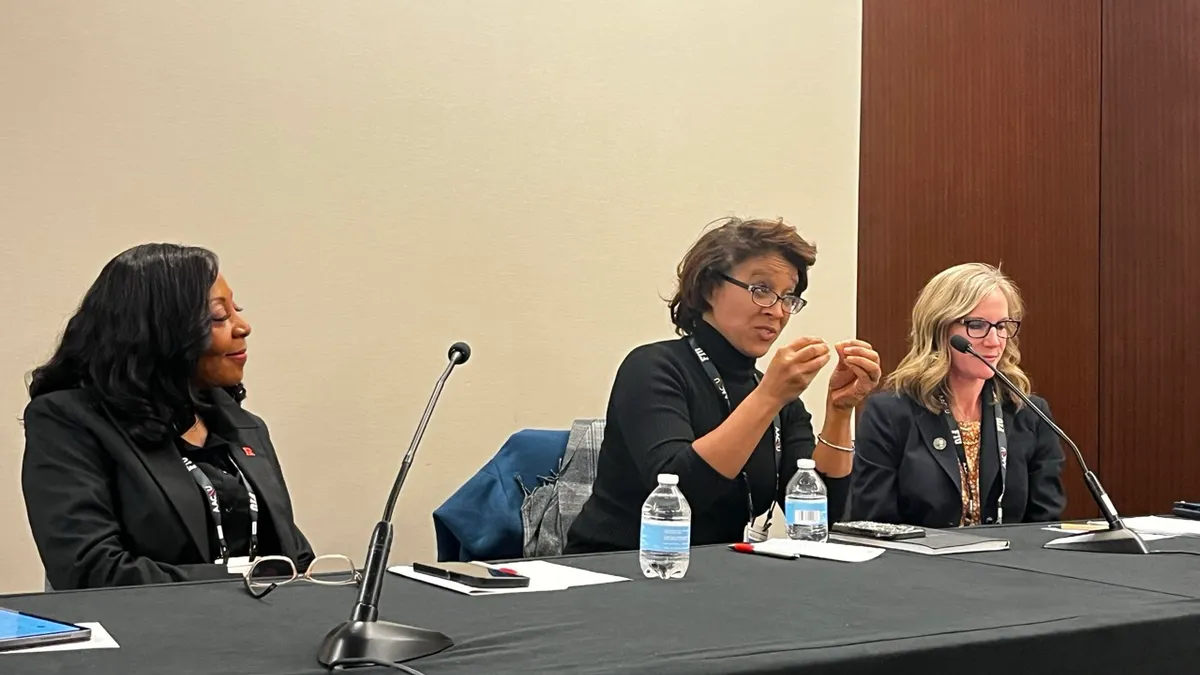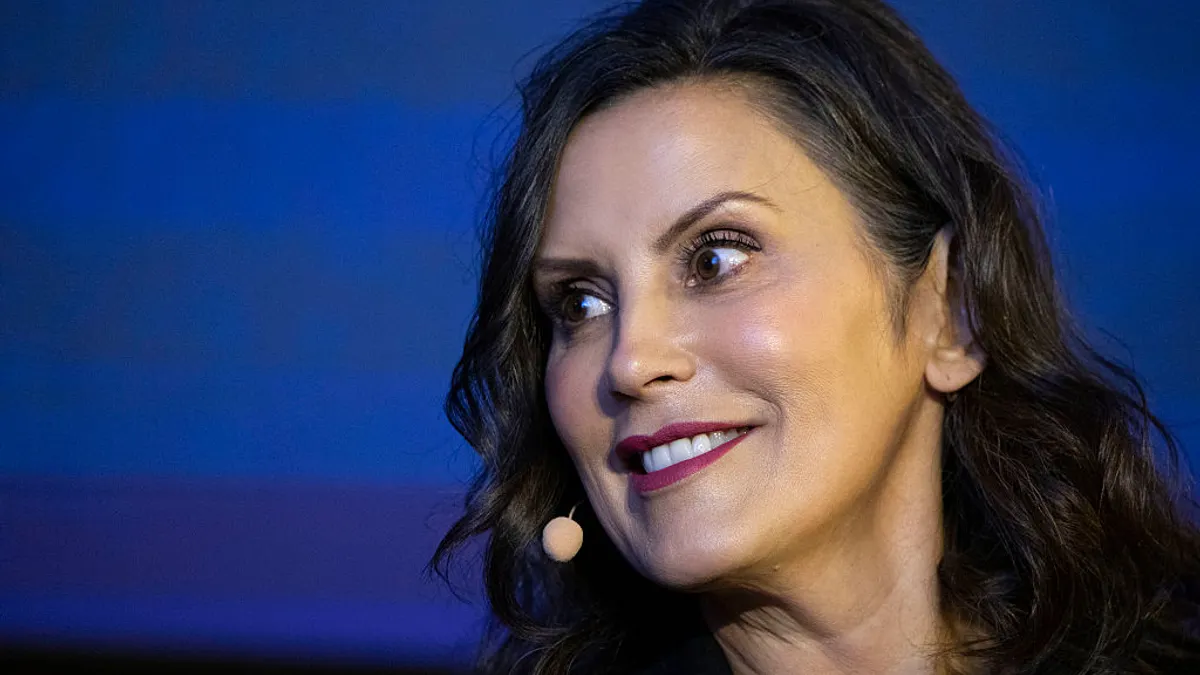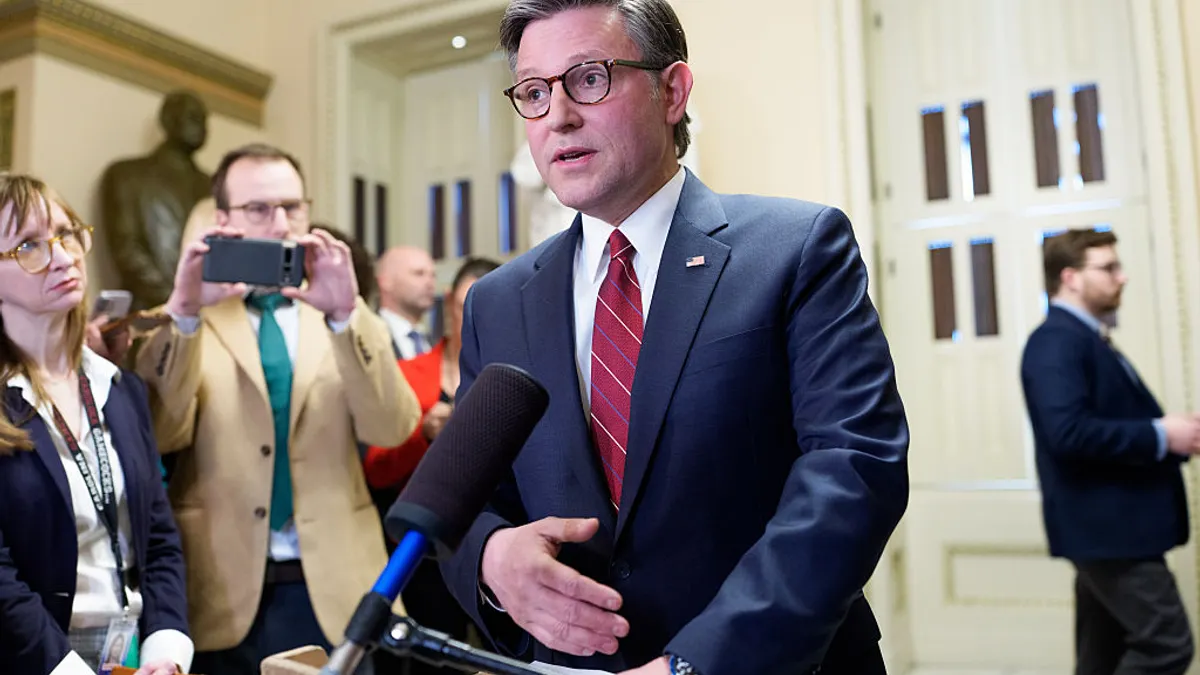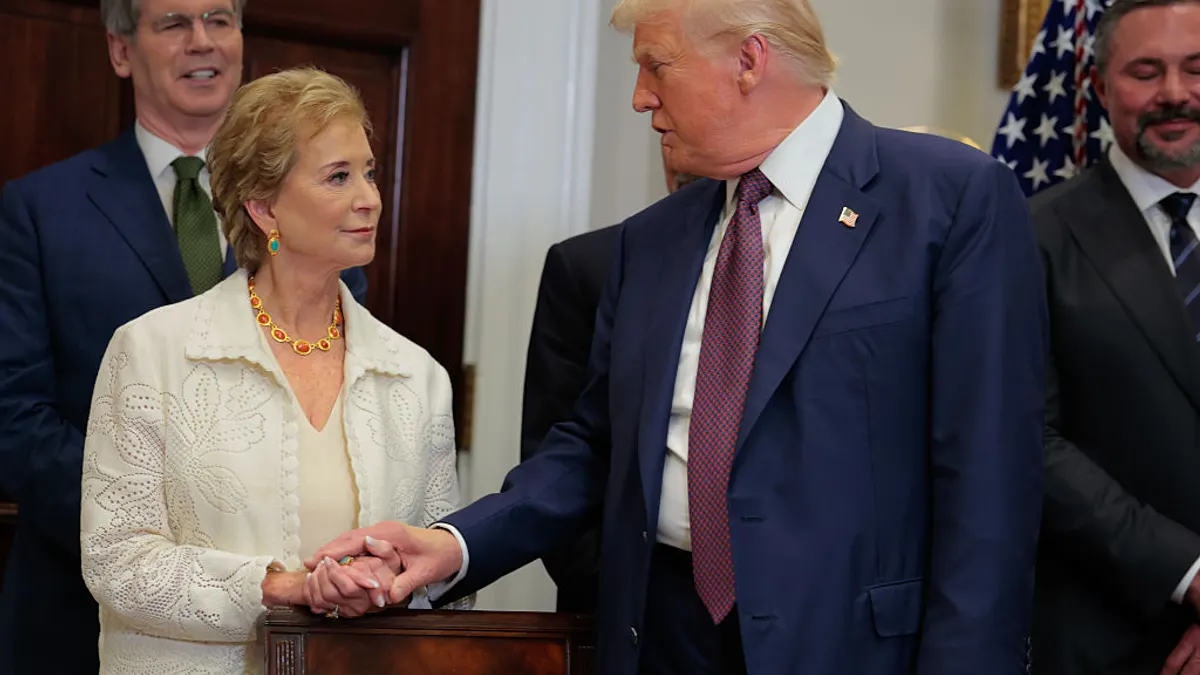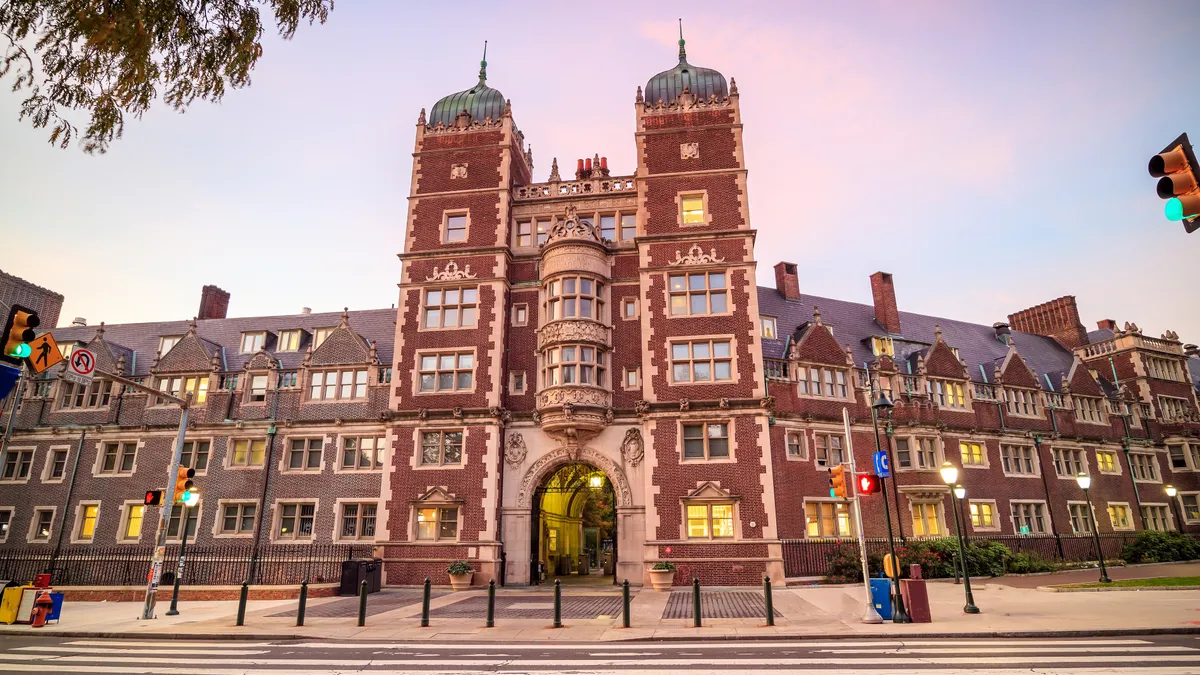International students hoping to get their Optional Practical Training federal authorization, which allows them to work in the U.S., are experiencing months-long delays. But colleges around the country are using a workaround to help them take advantage of internships and other employment: Curricular Practical Training, or CPT.
Unlike OPT, however, CPT is meant to be a required part of a student's degree or program of study. Although it has stricter conditions than OPT, CPT is useful for international students affected by visa delays because it doesn't need federal approval. A CPT authorization need only come from the university.
Colleges are jumping on the opportunity. Some, like Dartmouth College and Yale University, have created CPT-eligible courses in recent weeks. MIT is pointing affected students toward existing CPT-eligible courses. And Princeton will consider offering CPT courses for the summer of 2020.
These moves may come as a relief to international students. But not everyone thinks it's a good idea. A U.S. Immigration and Customs Enforcement (ICE) spokesperson referred Education Dive to a July 3 press release in which the agency cautions schools against using CPT as an alternative to OPT.
Hundreds of international students are facing long delays while obtaining their OPT authorization. The measure allows F-1 student visa holders to stay in the U.S. for one to three years after graduation to work in their field of study or participate in internships.
Students and administrators have voiced their concerns about the delays in recent months. Some universities have been quick to respond, creating new or promoting existing CPT courses.
In a letter to international students shared with Education Dive, Dartmouth said eligible international students could enroll in one of four courses that can receive CPT authorization. The college created the courses in response to the OPT delay issue, Dartmouth Provost Joseph Helble told the college's student newspaper in mid-June.
The courses are available for the summer 2019 term and only for students with an internship or other "practical training learning experience" related to their declared majors. The two-credit course, offered through the university's Guarini School of Graduate and Advanced Studies, will be graded on a Credit/No Credit basis and can't be used to satisfy graduation requirements, the letter said.
The four "Unspecified Graduate Courses" Dartmouth introduced cover broad topics in the sciences, social sciences, arts and humanities, and interdisciplinary studies.
In its letter, Dartmouth warns students of "several issues" to consider when deciding whether to apply for CPT. For one, officials wrote, "[g]iven the uncertain timing it is very possible" a student may get OPT authorization after they get CPT approval. That would give the student two concurrent periods of employment authorization and could mean the student can request less OPT time upon graduation. While that eventuality isn't a visa status violation, Dartmouth warned it could lead to additional future scrutiny by U.S. Citizenship and Immigration Services (USCIS).
CPT comes with a big caveat: Any student who completes 12 months or more of full-time CPT is ineligible for OPT. A part-time CPT has no OPT restrictions, according to ICE.
The Yale Daily News reported in early June that its international students can work for a U.S. employer this summer if they enroll in a new CPT course this fall. That is, before the course actually begins. The university didn't respond to Education Dive's email requesting comment as of Thursday afternoon.
Conversations about creating the course began a year ago, and the plan was to announce it later this year, Yale College Dean Marvin Chun told the campus newspaper. But the delays in OPT authorization spurred the university to offer the course sooner.
Dartmouth, too, was considering CPT classes for future years.
At MIT, 45 students filed OPT applications by mid-June. Of those, seven were eligible enroll in CPT opportunities through their departments, David Elwell, associate dean and director of the International Students Office, wrote in a Q&A published on the institution's website.
In the last four years, at least a dozen MIT academic programs have added CPT-eligible opportunities, Elwell noted. And just over 400 graduate and undergraduate students are authorized to participate in CPT programs this summer.
MIT may add more CPT programs. "We continue to work with MIT students and academic departments interested in creating CPT-eligible internship/experiential learning subjects in their curriculum through their respective departments," Elwell wrote.
Meanwhile, Princeton doesn’t offer CPT for undergraduates and only approves it for some graduate students. The university said in a June 18 web post that it is "committed to exploring the viability of offering (CPT) for summer 2020."
A little over a week later, Dean of the College Jill Dolan announced the appointment of a working group to examine whether to introduce academic credits for work experience, which could involve CPT.
"[T]ime-consuming federal processes for work authorization complicate international students' path to experiential learning in domestic employment settings," Dolan said in a statement.
ICE is aware some colleges are using CPT to tide over delays in students receiving OPT authorizations. It looks askance at these developments.
In an email to Education Dive, ICE pointed to a July 3 statement on its website that says OPT and CPT "have different requirements and purposes" and therefore "the two training programs are not interchangeable."
"SEVP (Student and Exchange Visitor Program) cautions schools about this practice since CPT must be an integral part of an existing curriculum and must be implemented in accordance with federal regulations," SEVP Director Rachel Canty said in the statement.
Ronald Cushing, director of international services at the University of Cincinnati, is wary of using the CPT option to cover for a delay in OPT authorizations for students who just graduated. His institution has 3,500 international students, half of whom are enrolled in CPT programs.
He said the argument for offering CPT for students who have graduated doesn't hold because it was designed to be a key part of the curriculum and conclude before they earn their degrees.
"If a student is applying for work post completion of degree saying it's 'practical training' the argument that 'work is a necessary part of curriculum' doesn't exist anymore," he said.


